
UNLIMITED HOT WATER
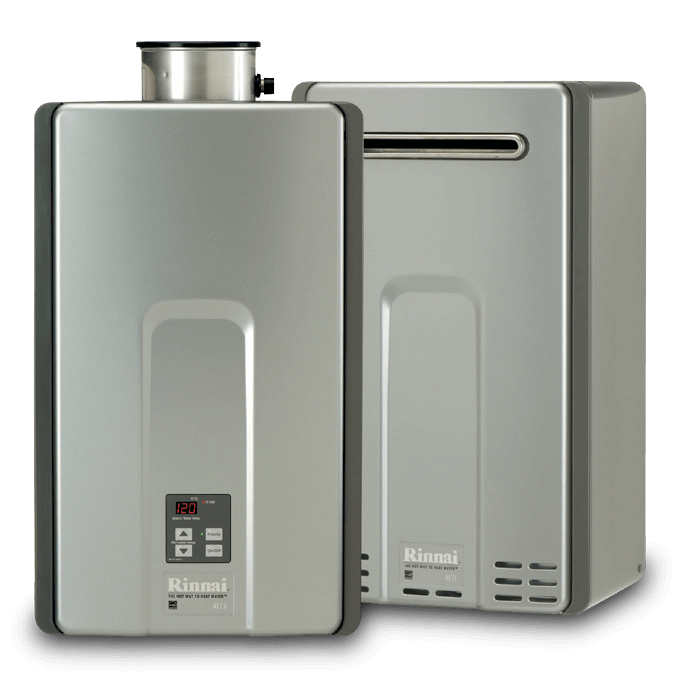
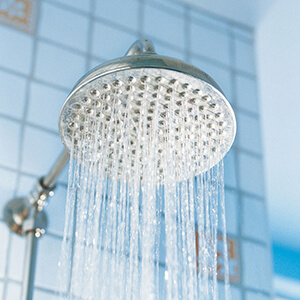
AFFORDABLE, EFFICIENT SAVINGS
Tankless water heaters operate only when hot water is needed, which means they use up to 40 percent less energy! Ultra-efficient heating coils, no pilot light and no storage tank mean you save on energy and utility costs.
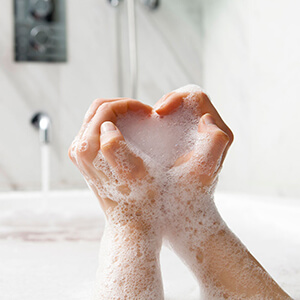
WORRY-FREE OWNERSHIP
Tankless water heaters last about two and half times the lifespan of a tanked water heater and have lower repair costs. Your family can enjoy an endless supply of hot water throughout your home – even for simultaneous uses at multiple fixtures.
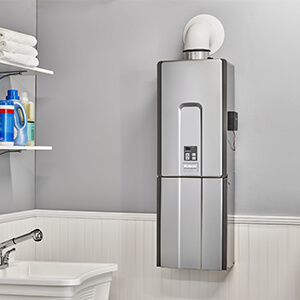
COMPACT CONVENIENCE
Endless hot water from an efficient, tankless water heater that is only the size of a suitcase! Rinnai’s wall-mounted tankless water heaters can be installed in out of the way, non-traditional spaces such as crawl spaces and attics.
THE SMART CHOICE IS THE #1 CHOICE
Spalding Gas prefers Rinnai for our tankless water heater customers because of Rinnai’s fierce commitment to quality. This commitment has made them the #1 selling tankless water heating brand in North America.
Family-friendly, earth-friendly.
Rinnai’s efficient technology helps conserve natural resources,
including water, and lower CO2 emissions produce a smaller
environmental footprint. With a life-span over twice that of a
tank water heater, your Rinnai helps reduce waste in landfills –
where nearly 7.5 million tank water heaters end up each year.
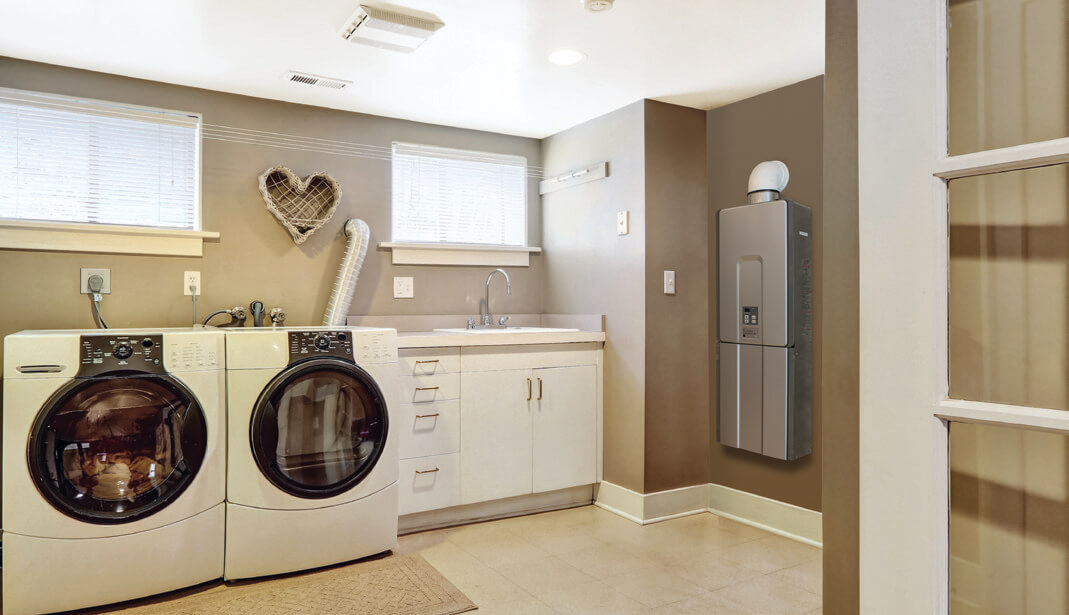
F.A.Q.
Are tankless water heaters better than tanked?
There are many advantages of a tankless water heater over a traditional tank unit. One of the main benefits is an endless supply of hot water. You can have multiple showers, a load of laundry and the dishwasher running simultaneously and they’ll all have all the hot water they need. Another big benefit is virtually instant hot water. Rather than waiting several minutes for the water to heat up, your tap will turn hot in seconds. With a Rinnai tankless water heater, you’ll save space since they’re a fraction of the size of a traditional tank, and you’ll save in energy costs, thanks to superior energy efficiency. Plus, tankless water heaters have approximately double the expected useful life of a tanked unit. A tankless water heater outperforms a tank water heater in just about every way.
How does a tankless water heater work?
Rather than storing water, tankless water heaters use heating coils to warm the water as you need it. That’s why tankless water heaters are often called “on-demand water heaters.” When you open a tap or start an appliance such as a dishwasher, the tankless water heater recognizes the need and begins to deliver hot water when and where you need it. This is much more energy efficient for hot water heating (versus traditional tank water heaters, which constantly heat water, even when none is needed).
Does a tankless water heater work differently with low-flow faucets or showerheads?
Typically you won’t notice a difference in hot water performance when you have low-flow faucets or showerheads. If you find you’re not getting the hot water you need, start by lowering the temperature setting on your tankless water heater by a couple of degrees. It’s counterintuitive, but it affects the hot/cold mix ratio and will activate the tankless water heater unit for lower-flow fixtures. Also, remember many single-handle faucets have limit stops that affect the hot/cold mix and may need to be adjusted. If this is the case, it may be helpful to check with the manufacturer of your faucet or consult the faucet manual for details on how to make these adjustments.
What size tankless water heater do I need?
There are many factors that impact the size of tankless water heater you should choose, including how many people are in your home or office and how many facilities (bathrooms, washrooms, laundry rooms or kitchens) the unit will service. To simplify the process, we have a handy three-step formula for choosing what capacity of Rinnai tankless water heater will work best for your needs. Step 1: Identify your required flow rate in gallons per minute (GPM) Step 2: Identify the groundwater temperature in your region or state Step 3: Calculate your required minimum temperature rise Your Spalding Gas professional will help identify the perfect tankless water heater for your household.
Can a tankless water heater be used to heat a pool or spa?
Tankless water heaters cannot be used for heating pools or spas because the chemicals necessary for those fixtures would damage the components of the water heater.
What type of regular maintenance does a Rinnai Tankless Water Heater require?
There are two types of periodic maintenance that your service technician should perform to keep your Rinnai tankless water heater in top shape. It’s important to note, the time in between necessary maintenance will depend on the water quality in your home.
1. The in-line screen filter should be checked periodically for debris and cleaned.
2. The unit should be flushed periodically to keep it free of scale and lime, which can shorten the water heater’s lifespan over time. This process should be completed by a professional.
